No, Fila is not a Chinese brand. Fila is an Italian sportswear brand that was founded in Biella, Italy, in 1911.
It is known for its clothing, footwear, and accessories, particularly in the field of sports and lifestyle fashion.
Fila has gained international recognition and has a global presence with its products being sold in numerous countries worldwide.
While Fila may have manufacturing facilities or business operations in China or other countries, it is fundamentally an Italian brand.
Also Check Out: Is Daniel Klein A Chinese Brand?
Is Fila A Chinese Brand?
What Are Fila’s Origins? A Brief History of the Brand
Fila is an Italian sportswear brand with a rich history. Here’s a brief overview of the brand’s origins:
Fila was founded in 1911 by brothers Giansevero and Ettore Fila in Biella, a city located in the Piedmont region of Italy.
Initially, the company focused on producing high-quality textiles for local townspeople. It quickly gained a reputation for its craftsmanship and attention to detail.
In the 1970s, Fila underwent a significant transformation when it shifted its focus towards sportswear and athletic apparel.

The brand began manufacturing clothing and footwear specifically designed for various sports, including tennis, skiing, and basketball.
Fila gained worldwide recognition during the 1980s and 1990s. Its iconic logo, featuring the bolded “F” with the distinctive red and blue colors, became synonymous with the brand.
Fila sponsored numerous prominent athletes, such as tennis players Björn Borg and Monica Seles, and its products gained popularity among sports enthusiasts and fashion-conscious individuals alike.
During this time, Fila expanded its product range to include not only sportswear but also lifestyle apparel and accessories.
The brand’s designs were characterized by their clean lines, classic silhouettes, and a blend of sporty and fashionable elements.

In the early 2000s, Fila faced some challenges, including changes in ownership and increased competition in the sportswear industry. However, it continued to innovate and adapt to changing market trends.
Today, Fila remains a globally recognized brand with a presence in various countries. It continues to produce sportswear, footwear, and lifestyle collections, blending its heritage with contemporary fashion influences.
Overall, Fila’s history showcases its evolution from a small textile manufacturer to an internationally renowned sportswear and lifestyle brand.
How Does Fila Conduct Its Global Operations in Manufacturing and Production?
Fila, as a global brand, has manufacturing and production operations in various countries around the world.
While specific manufacturing locations may vary over time, here are some general insights into Fila’s global operations:
Italy: As Fila’s home country, Italy plays a significant role in the brand’s manufacturing. Fila maintains manufacturing facilities in Italy, particularly for its high-end and heritage products.
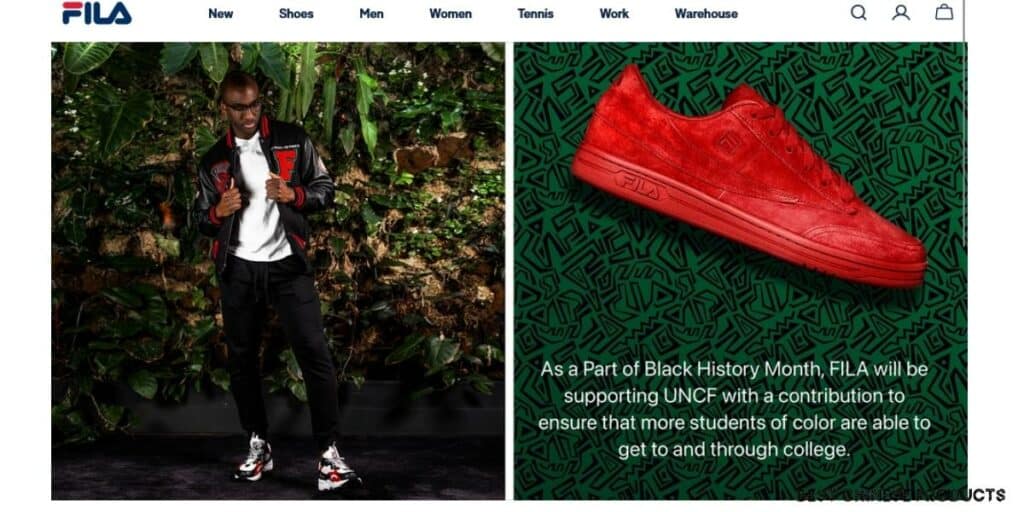
The country’s craftsmanship and expertise in textiles contribute to the brand’s commitment to quality.
China: Like many global brands, Fila has manufacturing operations in China. China’s manufacturing capabilities and cost-efficiency make it an attractive location for producing sportswear and other consumer goods.
Fila likely utilizes Chinese manufacturing facilities for some of its products.
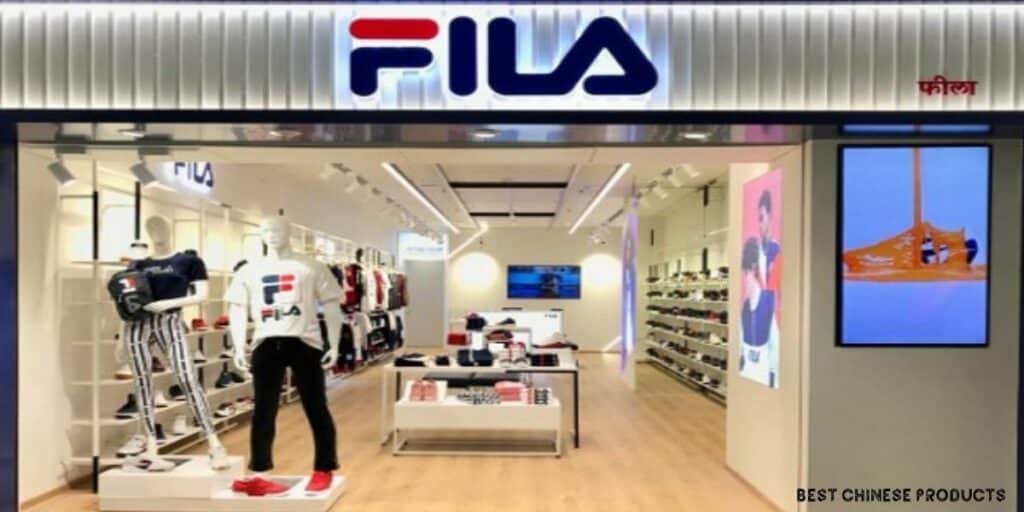
Other Asian countries: Fila also has manufacturing operations in other Asian countries, such as Vietnam, Indonesia, and Bangladesh.
These countries have established themselves as major hubs for apparel and footwear manufacturing due to factors like skilled labor, cost-effectiveness, and infrastructure.
Global sourcing: Fila, like many international brands, engages in global sourcing. This means that while some products may be manufactured in specific countries, others might be sourced from various locations worldwide.
Fila likely works with suppliers and manufacturers in different regions to optimize production and meet global demand.
How Has Fila Grown in Popularity in China?
Fila has experienced significant popularity and growth in the Chinese market over the years. The brand has successfully established a strong presence and a loyal customer base in China.
Here are some key factors that have contributed to Fila’s popularity and growth in the Chinese market:
Rising interest in sportswear: China has witnessed a growing interest in sportswear and athleisure fashion in recent years.
Fila’s athletic and lifestyle offerings align well with this trend, making it appealing to Chinese consumers who value both style and functionality.
Brand recognition and heritage: Fila’s history and brand heritage resonate with Chinese consumers.
The brand’s reputation for quality and its association with international sports stars have helped it gain recognition and appeal to consumers seeking prestigious and globally recognized brands.

Collaboration and partnerships: Fila has actively engaged in collaborations and partnerships with Chinese celebrities, influencers, and fashion brands.
These collaborations have helped increase brand visibility and attract a wider audience, particularly among the younger demographic.
Offline and online retail presence: Fila has invested in establishing a strong retail presence in China, both offline and online.
The brand operates numerous standalone stores in major cities across China and has also partnered with reputable department stores and multi-brand retailers.
Fila has a robust e-commerce presence, allowing Chinese consumers to easily access and purchase its products online.
Localized marketing and product offerings: Fila has adapted its marketing strategies and product offerings to cater to the preferences and tastes of Chinese consumers.
This includes designing special collections or limited-edition items specifically for the Chinese market and incorporating Chinese cultural elements into their campaigns.
Overall, Fila’s popularity and growth in the Chinese market can be attributed to its ability to tap into the growing sportswear trend, leverage its brand heritage, forge strategic partnerships, and cater to the specific preferences of Chinese consumers.
What Are Fila’s Most Iconic Products?
FILA has produced several iconic products that have become synonymous with the brand’s heritage and style. Here are a few of FILA’s most iconic products:
FILA Disruptor: The FILA Disruptor is a chunky, platform-style sneaker that gained immense popularity in recent years.
Known for its exaggerated sole and distinctive design, the FILA Disruptor became a fashion statement, particularly within the chunky sneaker trend.
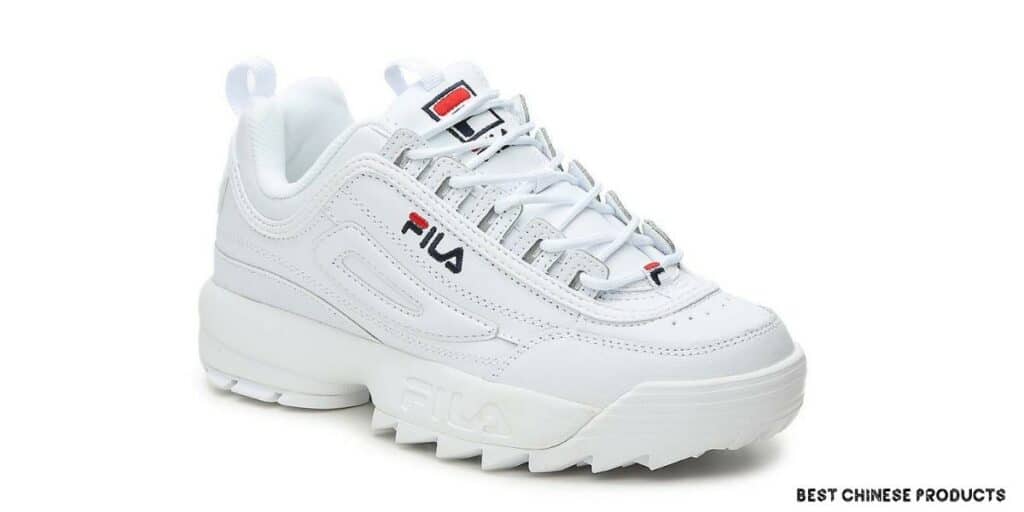
FILA Tracksuits: FILA tracksuits have been a staple of the brand for decades. The tracksuits often feature color-block designs, bold logos, and a retro aesthetic. FILA tracksuits have been popular both as sportswear and as casual fashion items.
FILA Tennis Classics: FILA’s association with tennis has led to the creation of iconic tennis classics. The FILA Original Tennis shoe, for example, is a timeless silhouette known for its clean design, quality construction, and comfort.
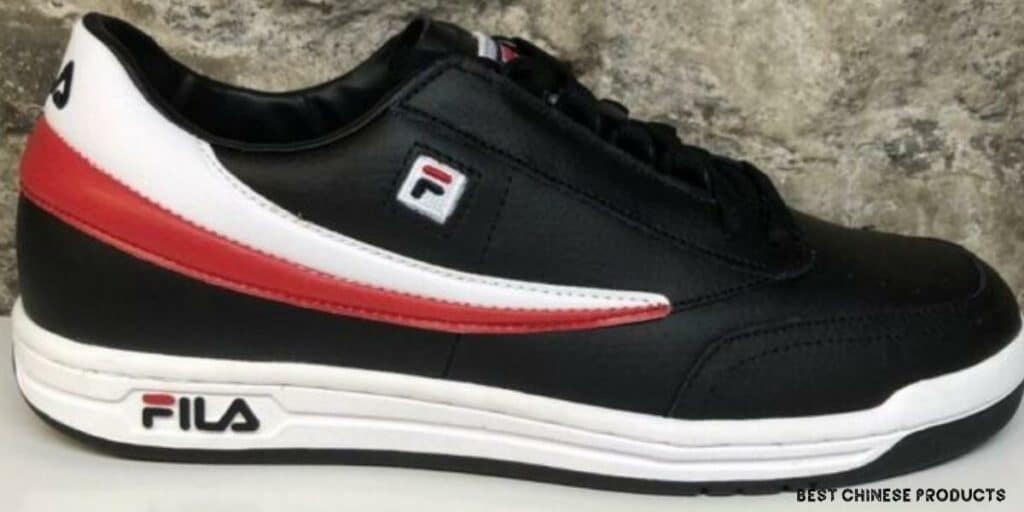
These tennis classics have become sought-after items for both athletes and fashion enthusiasts.
FILA Polo Shirt: FILA’s polo shirts have been a symbol of sporty elegance and timeless style. Featuring the brand’s logo, quality materials, and attention to detail, FILA polo shirts embody the brand’s heritage and sophistication.
FILA Skiwear: FILA made a mark in the skiwear category, offering stylish and functional apparel for winter sports enthusiasts. FILA ski jackets, pants, and accessories have been recognized for their quality, durability, and performance features.
Which Celebrities Have Endorsed Fila and Collaborated with the Brand?
FILA has engaged in various celebrity endorsements and collaborations over the years. These collaborations have helped increase brand visibility, attract new audiences, and create unique product offerings.
Here are a few notable celebrity endorsements and collaborations that FILA has been involved with:
BTS: FILA collaborated with the global K-pop sensation BTS for a multi-year partnership starting in 2019. BTS became global brand ambassador for FILA, endorsing and representing the brand in various promotional campaigns and events.
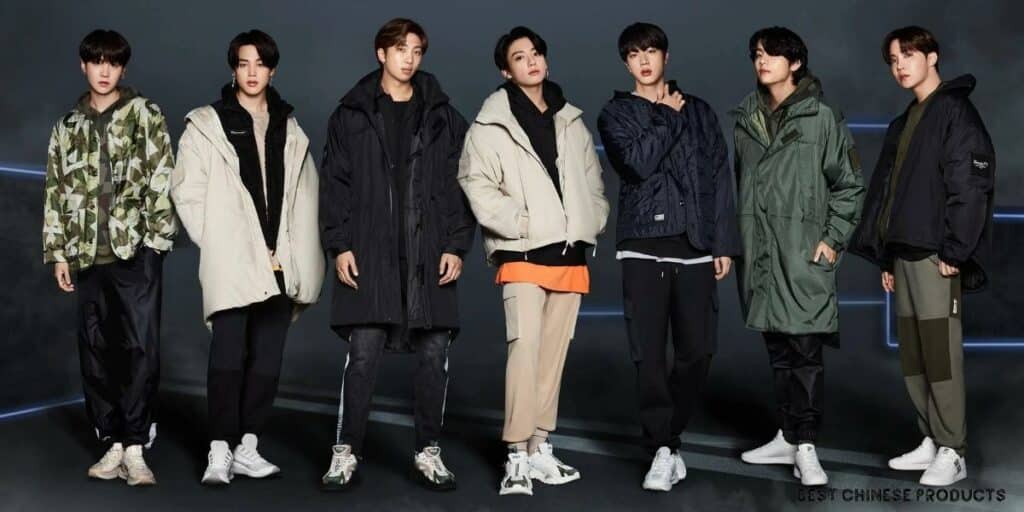
This collaboration helped FILA tap into the massive global following of BTS and gain popularity among K-pop fans.
Grant Hill: Former NBA player Grant Hill had a long-standing endorsement deal with FILA in the 1990s.

He was a key figure in promoting FILA’s basketball sneakers, particularly the FILA Grant Hill signature shoe line. Hill’s partnership with FILA helped establish the brand’s presence in the basketball footwear market.
FILA x Gosha Rubchinskiy: FILA collaborated with Russian fashion designer Gosha Rubchinskiy for a series of capsule collections.
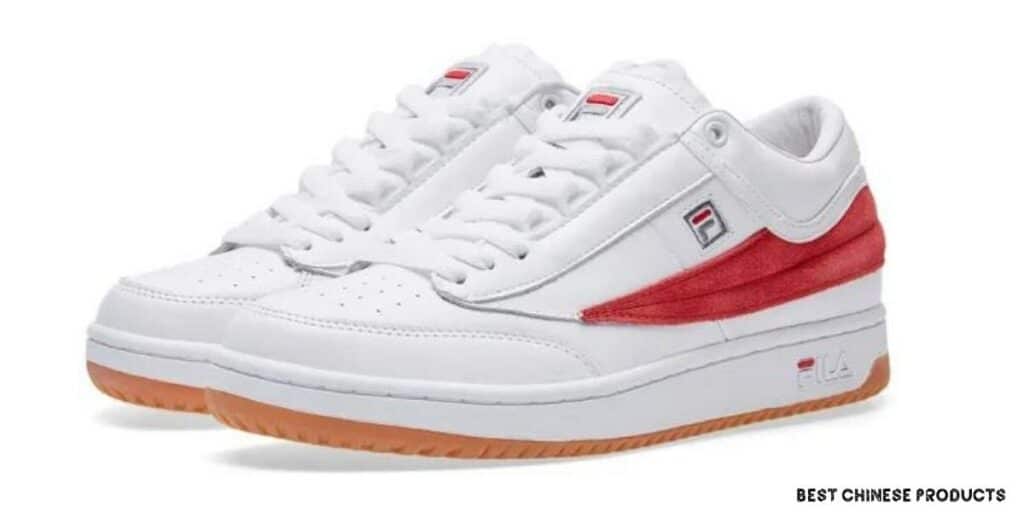
The collaboration blended FILA’s sportswear heritage with Rubchinskiy’s streetwear aesthetic, resulting in unique and fashion-forward designs.
FILA x Fendi: FILA collaborated with luxury fashion brand Fendi for a special collection in 2020.
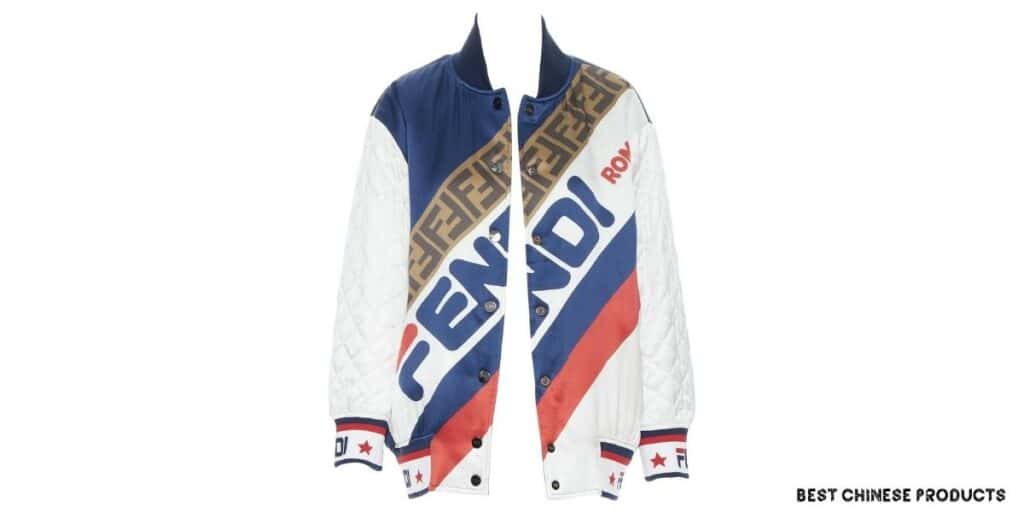
The collaboration merged FILA’s sportswear DNA with Fendi’s high-end craftsmanship and iconic logos, creating a fusion of athleisure and luxury fashion.
FILA x Barneys New York: FILA partnered with high-end retailer Barneys New York for an exclusive collaboration in 2018.
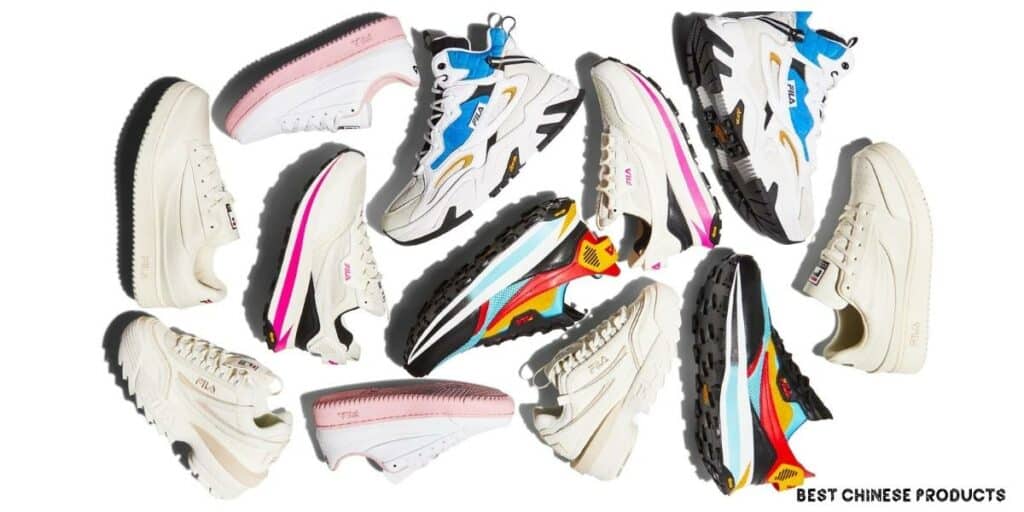
The collaboration featured limited-edition FILA apparel and footwear, combining streetwear elements with a luxury twist. These are just a few examples of FILA’s celebrity endorsements and collaborations.
The brand has also worked with other athletes, influencers, and fashion designers to create unique and impactful collaborations that have helped elevate its brand image and appeal to diverse audiences.
Conclusion
In conclusion, while Fila has established a significant presence in the Chinese market and enjoys considerable popularity there, it is not originally a Chinese brand.
Fila’s origins trace back to Italy, and it has since become a global entity with operations and influences in various countries.
The misconception might arise from its strong market presence and success in China, but the brand’s roots are distinctly Italian.
Recognizing the distinction helps in understanding the brand’s diverse influences and the global nature of today’s fashion industry.
Related
Page Contents
